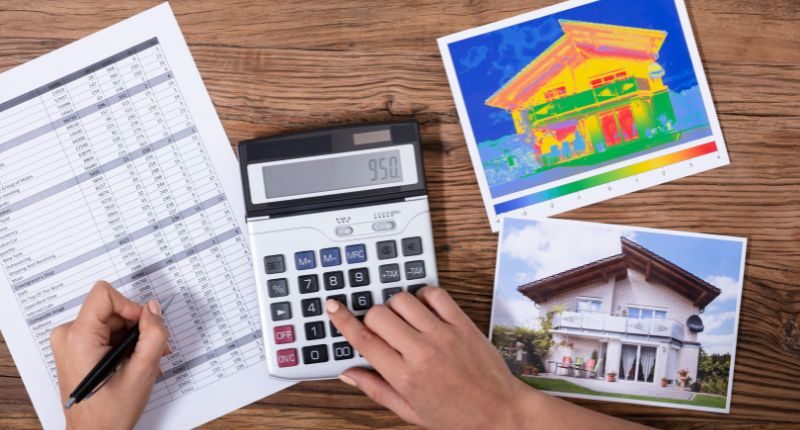- The Federal government is expecting energy prices to rise by 30% next year
- This follows a 20% rise so far this year
- Along with installing solar panels, buying more energy efficient appliances can also lower power bills
With energy prices set to soar in 2023, and the Federal Government predicting a 30% increase in costs on top of the 20% rise this year, new research from Money.com.au has found that the majority of Australians are willing to spend thousands to upgrade their home in an effort to reduce their bills.
Three-quarters said they will invest in home improvements, such as solar roof panels and higher energy star-rated appliances over the next two years.
Solar panels the most popular investment to reduce energy costs
Specifically, 29% of respondents will install solar panels in the next two years. A typical six-kilowatt system costs around $4,000 to $6,000. Around 32% of Australian households have solar panels.
Helen Baker, a licensed financial adviser and Money.com.au spokesperson, said that while the upfront cost can be costly, after around six cycles of energy bills, many households will see a significant return on their investment.
Experts estimate that a typical household will save over $1,000 annually. For Victorians, this is $791 per year, $1,127 for Queenslanders, $1,138 for NSW residents and $1,340 for South Australians.
“I have worked with clients who have seen their quarterly energy bills fall to two digits,” noted Ms Baker.
“It is also important for households to note that government rebates are available for solar panel installation.
“For instance, the Victorian Government offers a rebate of up to $1400 for solar panel installation, while the NSW Government has a scheme for eligible, low-income households to access a free three-kilowatt system.
“Installing solar panels can also increase the value of a property, making it a worthwhile upgrade for those considering selling their home.”
Around one in five respondents (21%) said they were prepared to update their appliances to a better energy rating to reduce bills.
“Appliances account for approximately 30% of a household’s energy use, so switching to more energy efficient options can help Aussies slash significant costs off their bills annually.,” she added.
Ms Baker added that a two and a half-star rated 8kg washing machine, if used daily, costs $118 to run. A similar model with a five-star energy rating will cost just $64.28 annually, and therefore more than $640 over a 10 year period.
“It is important for households to weigh up whether it is worth switching out appliances, particularly if they don’t require an upgrade,” she added.
“It may not be worth the cost to update an appliance if the cost savings amount to very little, while unwanted appliances are likely to end up in landfill, which can still have an impact on the environment.
“For households that still wish to upgrade but have an old appliance that is still in working order, consider selling the item to prevent waste.”
Other improvements include investing in better window dressings to prevent or trap light and heat (10%), improvement to increase ventilation and airtightness (7%) and the installation of better insulation in the roof (5%).
Australians sceptical of transition to renewable energy
The survey also asked respondents if they believe that the switch to renewable energy sources will result in lower bills.
Despite many respondents planning to invest in rooftop panels, nearly two-thirds (61%) said they weren’t confident in the positive impact of renewable energy on a national scale.
Nearly one in three (32%) said that think renewable energy won’t impact the cost of their household energy bills, while 29% said it will result in more expensive bills.
Older respondents appeared to be the most sceptical of a renewable energy transition. 32% of those over 50 said renewable energy will increase their energy bills, compared to 28% of 31-50-year-olds and 25% of under 30s.
37% of over-50s said they believed the shift won’t have any impact on their bills, followed by 30% of 31 to 50-year-olds and 26% of under-30s.
“It is surprising that a high proportion of Aussies think their bills will be more expensive when the country switches to renewable energy sources,” said Ms Baker.
“However, the population isn’t completely off base with this sentiment. At an individual level, renewable energy use, such as through solar panels, can reduce energy bills. However, its cost-saving power on a national scale is still a grey area.
“It will take a long time before Australia makes a full transition to renewable energy sources. In the meantime, I encourage households to watch their energy use even if they have installed solar panels. If you use more than the energy provided by your solar system, you draw energy from the grid, which continues to impact the environment.”








